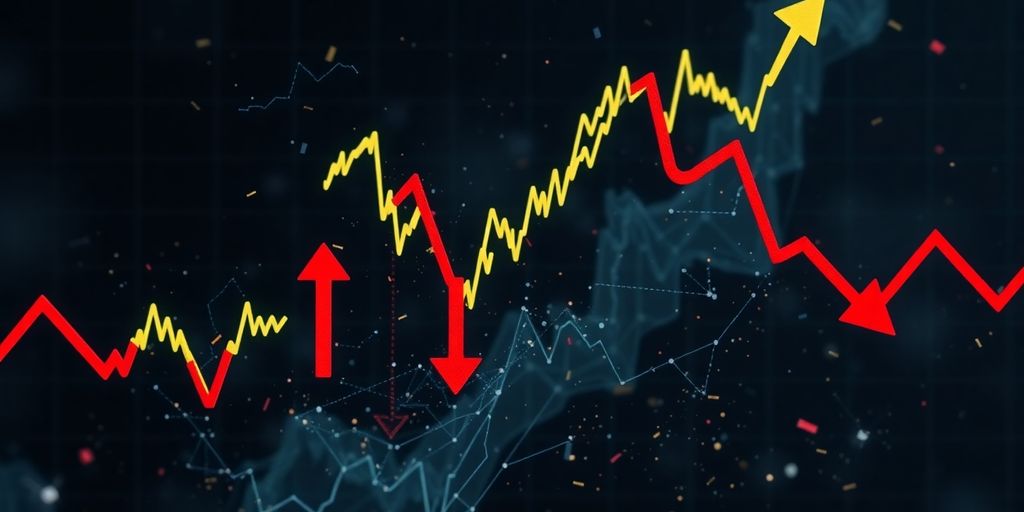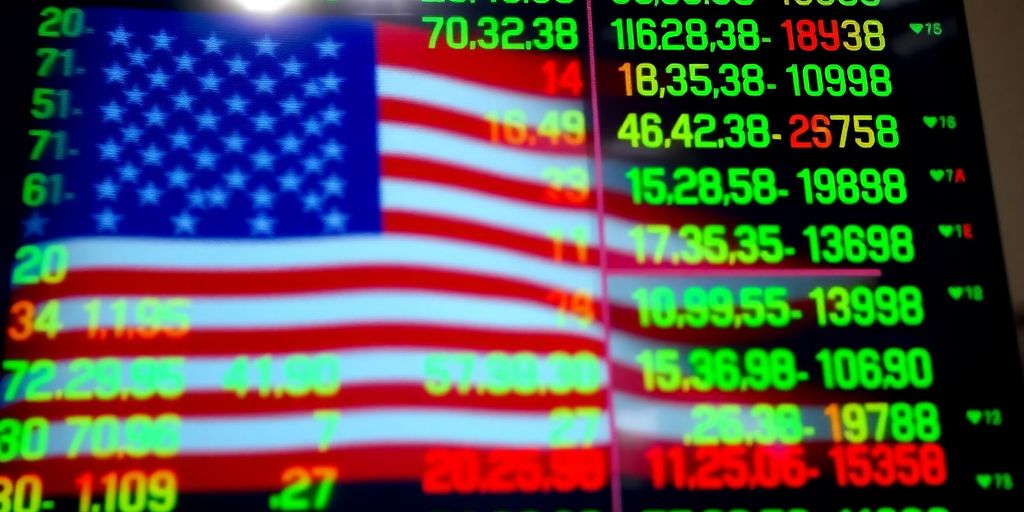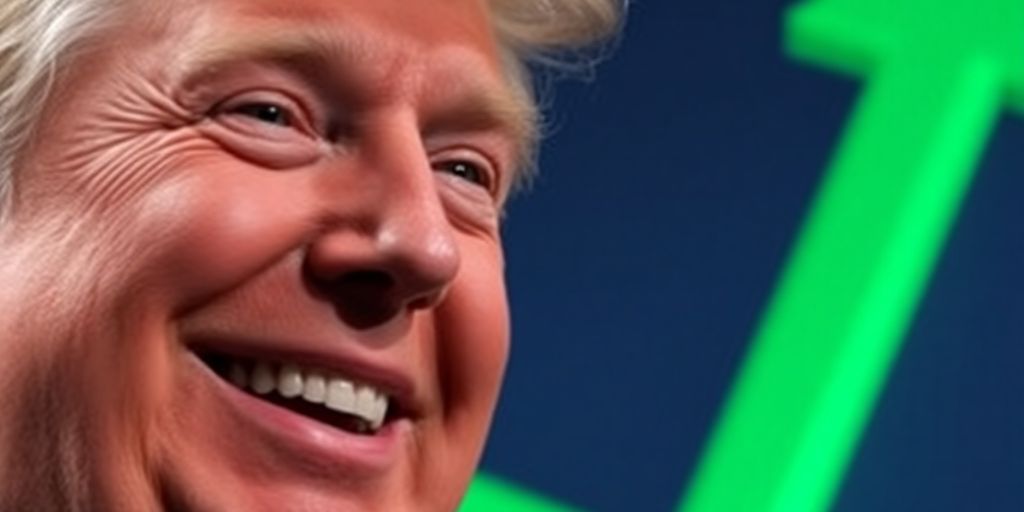Wall Street Ends Mixed Amid Mounting Uncertainties and Economic Fears
U.S. stock markets closed mixed as investors grappled with rising economic fears, tariff threats, and inflation concerns, leading to a volatile trading session.

Former President Donald Trump's proposed tariff policies are casting a long shadow over global markets, contributing to significant volatility and raising concerns about inflation and economic growth. Investors are grappling with the potential impact of these trade measures, alongside other economic factors, creating a complex and uncertain investment landscape.
Concerns are mounting that President Trump's potential imposition of new tariffs could reignite inflationary pressures. Analysts suggest that these tariffs, if enacted, could lead to higher import costs, which may be passed on to consumers. This adds another layer of complexity for the Federal Reserve, which is already navigating persistent inflation worries and a cloudy outlook for interest rate cuts. The Fed has indicated a data-dependent approach, but policy shifts like tariffs create forecasting challenges.
The prospect of increased tariffs and broader policy uncertainty has led investors to adopt a more cautious stance. Many are reducing their risk exposure by cutting position sizes and diversifying their investments across different asset classes and within equities. This heightened uncertainty has contributed to significant market volatility, with sharp swings observed in major stock indices. The tech sector, which has been a primary driver of market performance, is particularly sensitive to these shifts, with recent earnings reports from megacap tech companies showing mixed results and testing investor confidence.
The Federal Reserve recently maintained its benchmark interest rate, signaling a pause in its rate-cutting cycle. The timing of future rate cuts remains uncertain, influenced by incoming economic data and potential policy changes, including tariffs. While markets had anticipated some rate cuts this year, the evolving economic landscape, marked by trade policy uncertainty and inflation concerns, suggests a more prolonged period of stable rates. This environment necessitates careful monitoring of economic indicators and policy announcements to navigate the market effectively.
The ripple effects of these policies are being felt globally. Countries heavily reliant on exports to the United States, such as Vietnam and Australia, are experiencing currency depreciation and stock market declines as they face increased tariffs. Emerging markets and commodity prices are also showing sensitivity to the shifting global trade dynamics. The broader economic impact could include slower growth and increased borrowing costs for nations with high debt burdens, underscoring the interconnectedness of global markets and policy decisions.

U.S. stock markets closed mixed as investors grappled with rising economic fears, tariff threats, and inflation concerns, leading to a volatile trading session.

Explore the tumultuous journey of US stocks under Donald Trump's presidency, from initial record highs to tariff-induced volatility and recession fears. A comprehensive analysis of market reactions.

U.S. stocks hit record highs following Donald Trump's return to the presidency, driven by optimism over anticipated tax cuts, deregulation, and strong economic data. Learn about the market's surge and policy impacts.
We're just a bunch of guys mixing up market news with our own brand of banter, giving you the lowdown on stocks with a twist at Walk The Street Capital.